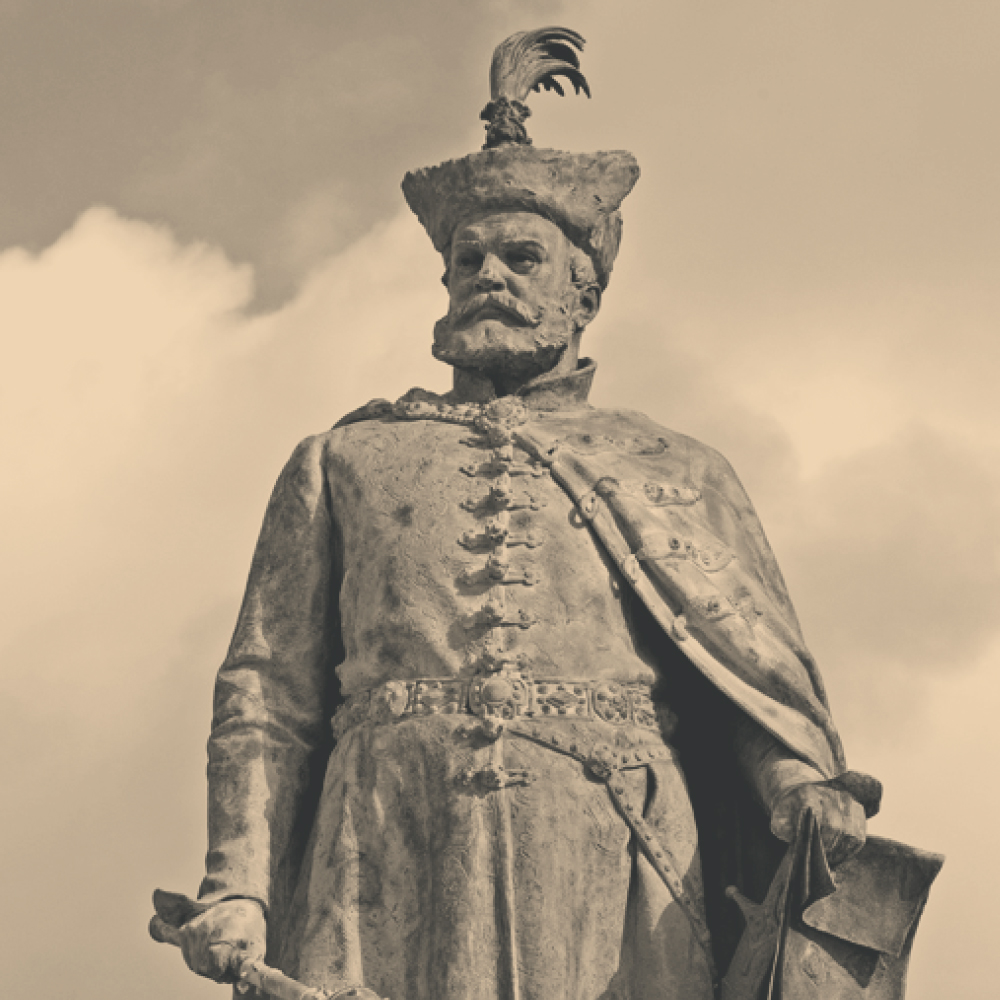
The Habsburg armies started persecuting protestants in Transylvania. Bocskai protested against General Basta’s acts, so the Habsburgs took legal action against him and banished him to Prague, from where he could only return after 7 years. Upon seeing the desperate people (and hearing the encouragement of Gabriel Bethlen), he organized an anti-Habsburg uprising. On the night of 14 or 15 October 1604, the Hajdús in the royal army joined Bocskai’s force, and eventually won the battle near Álmosd and Diószeg. The Bocskai uprising officially began, where the Hajdús, the peasants, the bourgeoise, the noblemen and some aristocrats fought together against the imperial forces.
In February 1605, he was elected Prince of Transylvania, and after two months he was also acclaimed Prince of Hungary. In the same year, they captured most of Royal Hungary, as well as Transylvania in late summer with the help of Székely troops.
Despite his successes, Bocskai wanted to make a compromise with Rudolf II. On 23 June 1606, the Treaty of Vienna was signed. The document guaranteed the freedom of religion and feudal rights, too. The Habsburgs accepted Transylvania’s independence, and they gave some territories to it (Tokaj, Ung County, Szatmár county, Bereg county)
The statue of Stephen Bocskai is the creation of Barnabás Holló.











